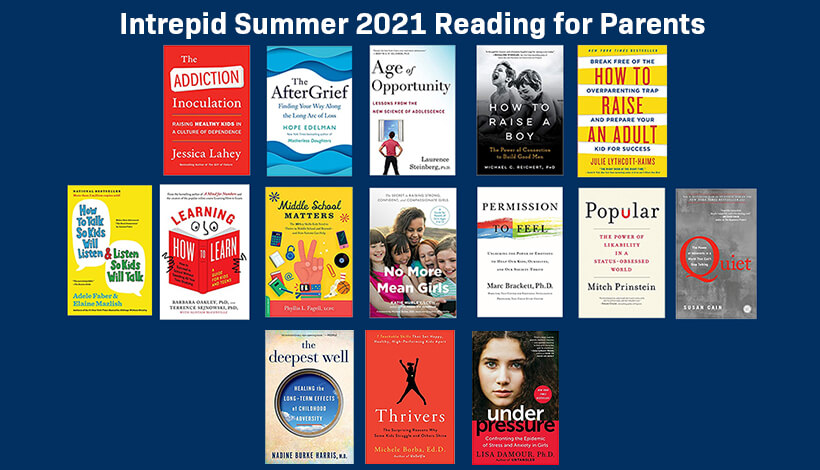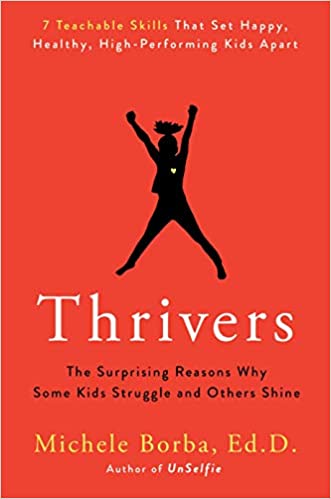Want to know one of the best parts of working as a parenting journalist? I get to read a lot of books.
I read pen-in-hand. If, after finishing, a book is so dog-eared, post-it-noted, and marked up that it looks like a Velveteen Rabbit in print form, I put it on a special bookshelf — for sharing, referencing, and rereading.
Here are 15 books that sit on that shelf (when I haven’t lent them out to a friend).
- Thrivers: The Surprising Reasons Why Some Kids Struggle and Others Shine, by Michelle Borba
Michelle Borba, an educational psychologist and character development expert, identifies seven character strengths that help humans flourish across their lifespan: self-confidence, empathy, self-control, integrity, curiosity, perseverance, and optimism. Not only does Borba knit together the research and tell engaging stories, she also offers really practical advice on how to help children develop each of these strengths. You can read my interview with Michelle Borba here.



